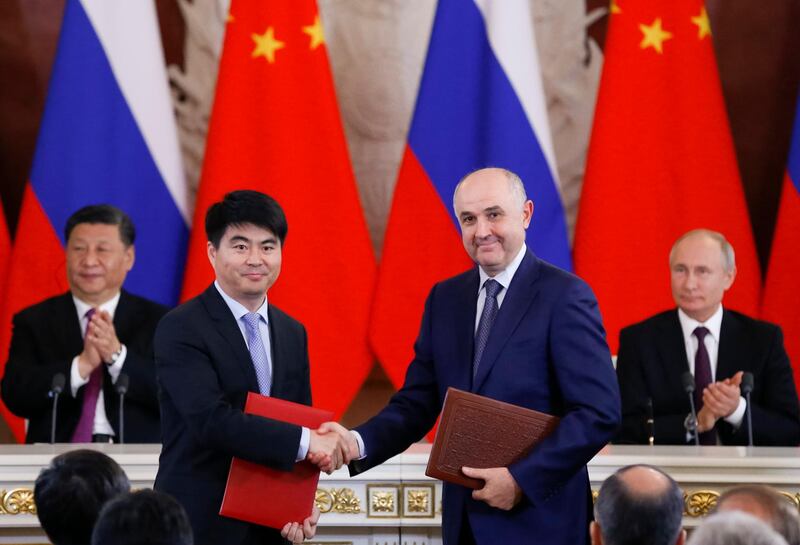China approved four operating licences for 5G networks and the country's largest technology company struck a deal with Russia to develop a 5G network in the country amid escalating trade tensions with the US.
The country’s three state-owned wireless carriers and China Broadcasting Network Corp. were granted licences for full commercial deployment, according to state broadcaster CCTV. The operators, China Mobile, China Telecom and China Unicom Hong Kong, have been testing the technology in several cities including Beijing and Shenzhen.
Full deployment of 5G networks in a country with almost 1.6 billion wireless phone subscriptions is expected to boost local companies designing gear for applications in autonomous driving, robotics, remote surveillance and virtual reality. The faster-than-expected approvals also come as Shenzhen-based Huawei Technologies, the world’s largest manufacturer of networking equipment, has vowed to maintain its lead in the face of a U.S. campaign pressuring allies not to use the company’s products.
The battle over 5G network suppliers is part of a broader push by the Trump administration to check China’s rise as a global technology powerhouse. China continues to welcome foreign enterprises to its 5G market, Minister of Industry and Information Technology Miao Wei said Thursday, after the licences were announced.
Shares of some 5G-related companies fell in Hong Kong and Shanghai trading after the license announcement, trimming gains made earlier in the week on expectations the companies would benefit from the push for the new networks.
China Tower Corp., the three major carriers’ infrastructure provider, fell 3 per cent as of 10:50am in Hong Kong, paring its advance in the past four days to 9.1 per cent. ZTE, which makes handsets and telecom gear, dropped 4.3 per cent, trimming its four-day rally to 7.1 per cent.
Betting on the fate of the nation’s next generation of telecom networks has been one of the year’s hottest trades in China and Hong Kong. An index of telecom-related shares is up 20 per cent this year, led by a 54 per cent rally in ZTE’s Shenzhen-traded stock.
Beijing-based Xiaomi in March said it would introduce China’s first 5G phone in May or June. Huawei and ZTE, have also said they intend to offer handsets compatible with the technology this year.
Introducing 5G will directly add 6.3 trillion yuan (Dh3.3 trillion) to economic output and 8 million jobs by 2030, the China Academy of Information and Communications Technology estimates.
On Wednesday Huawei, which is being targeted by the US, signed a deal with Russian telecoms company MTS to develop a 5G network in the country over the next year,
The agreement was signed on the sidelines of a meeting between Chinese leader Xi Jinping and Russian President Vladimir Putin in Moscow.
The deal will see "the development of 5G technologies and the pilot launch of fifth generation networks in 2019-2020", MTS said in a statement.
Huawei's Guo Ping, said he was "very happy" with the agreement "in an area of strategic importance like 5G," according to the statement.
The Chinese telecom giant has been in turmoil since May, when the Trump administration banned US companies from selling high-tech equipment to Huawei over suspicions it is spying for Beijing. The company has denied any wrongdoing.








